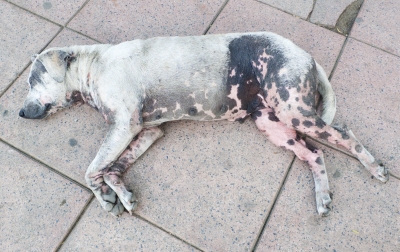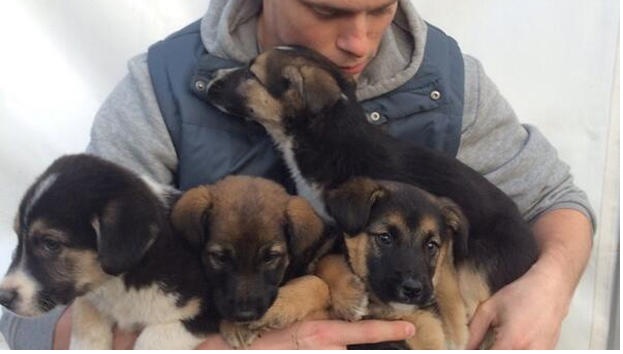There’s a dog angle to any news story if you sniff hard enough. Take the Olympics, for example. Along with reports of soggy snowboarding slopes and a grim-faced 15-year-old Russian skater girl, there have been stories about the rounding up and extermination of stray dogs in Sochi, along with stories about the willingness of Olympic athletes to adopt these strays and bring them home to the United States.
An Internet search for a reputable source yielded a story from the New York Times. According to the article, “hundreds of dogs” were killed leading up to the opening ceremonies. In response to public outcry, Russian billionaire Oleg V. Deripaska is financing a rescue effort that includes rounding up dogs and bringing them to a makeshift shelter “which is really an outdoor shantytown of doghouses on a hill on the outskirts of the city,” but that’s a whole lot better than being “shot with poisoned darts, then tossed into waiting trucks” as some residents attest.
Only the most hard-hearted would be unmoved by the plight of the Sochi dogs. Several Olympic athletes, including Amanda Bird and Gus Kenworthy, have taken steps to adopt strays from Sochi. It’s not as easy as it sounds; Humane Society International has this guide posted on their website to guide those who are willing to spend the time and money it takes to internationally transport a stray dog.
Of course this may lead some to ask “What about the stray dogs in the United States?” Or even “What about human rights in Russia?” Russia’s anti-gay legislation has been in the news for weeks. Slate reported via the New York Times that as many as 2000 Sochi-area families were forced to give up their homes in the wake of construction for the Olympic stadiums. Ironically, many of those families had to abandon their pets in the process, contributing to the stay dog population in the area.
We would never criticize anyone for rescuing any dog, and the Sochi dogs are no exception. The problem is that it can be so much easier to rally sympathy for animals than it is for humans. In spite of some of the hoops the Olympian adopters will have to jump through, Sochi dogs are relatively simple to rescue – they have no political motives, no cultural taboos, and no hidden agendas. By contrast we humans are overwhelmingly complicated in our needs, and myriad theories exist on how best to meet them. It is often easier to do nothing, or say nothing. However, I suspect everyone who cheers for the Olympic athletes and their decision to adopt a Sochi stray has a twinge of guilt about some of the others – including humans – left behind.


